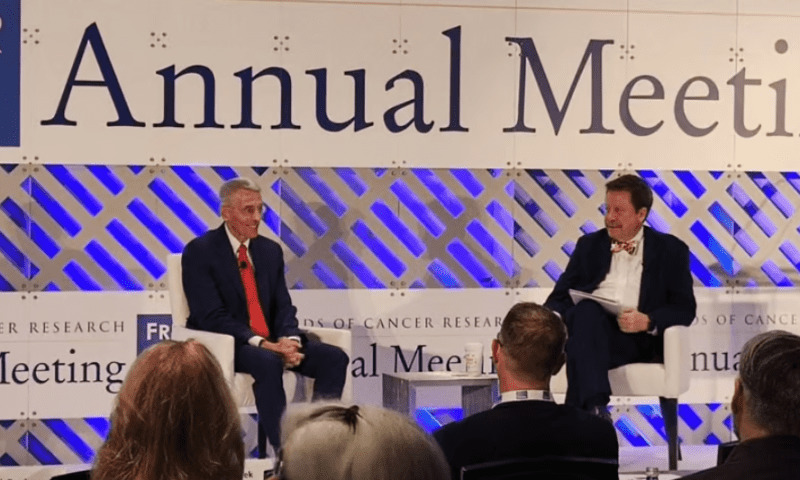The FDA’s oncology department, under the leadership of Richard Pazdur, M.D., is getting tougher on accelerated approvals for cancer drugs.
When considering accelerated approvals for oncology therapies, the department wants to have a company’s confirmatory trial plan upfront, not after the therapy is already on the market, Pazdur said Thursday.
“The major thing that we’re really interested in is companies having a comprehensive plan about what their confirmatory study is … to discuss this earlier on,” Pazdur said during a discussion with FDA Commissioner Robert Califf, M.D., at the Friends of Cancer Research annual meeting Thursday.
As part of the FDA’s policy, Pazdur said the Oncology Center of Excellence wants to see confirmatory trials underway when companies submit their applications for accelerated approvals. That requirement may look different in different situations, Pazdur said in an interview with Fierce Biotech on the sidelines of the meeting.
The FDA’s renewed scrutiny on confirmatory trials will likely shake up how certain biotechs develop cancer drugs. Previously, some small companies counted on accelerated approvals—based on single-arm trials conducted in a small number of heavily pretreated patients—as an entry point to the commercial market.
Further, small companies sometimes rely on initial accelerated approvals to start making deals or raising money to fund larger randomized trials. The FDA’s requirement for early confirmatory trials could spell the end of that business model.
Pazdur first signaled the stronger stance in an October New England Journal of Medicine article. In that article, Pazdur and colleagues noted that oncology withdrawals under the accelerated approval pathway took 7.3 years at median if the confirmatory trial wasn’t ongoing at the time of the green light. That compared with 3.8 years if the confirmatory study was already underway.
The time between an accelerated approval and either confirmation of efficacy or a market withdrawal is “a period of vulnerability” that the agency is trying to address, Pazdur said during Thursday’s meeting.
Since that article, ADC Therapeutics revealed that its bid for an accelerated approval for camidanlumab in relapsed or refractory Hodgkin lymphoma was delayed because the FDA wants its phase 3 confirmatory study to be “well underway and ideally fully enrolled” before a filing.
Regeneron has also pushed back its timeline for CD20xCD3 bispecific antibody odronextamab in certain lymphoma types, citing the FDA’s focus on having phase 3 trials “substantially enrolled” at the time of submission, CEO Len Schleifer, M.D., Ph.D., told investors during the company’s third-quarter earnings call.
Still, having a “substantially” or “fully” enrolled confirmatory trial is not a one-size-fits-all guidepost for oncology developers seeking accelerated approvals. The agency can be flexible with real breakthrough therapies when it comes to accelerated approvals but can also be strict if it’s just “another drug,” Pazdur told Fierce Biotech.
Companies should know which class their drug belongs in during their initial discussions with the FDA, he added.
“What we’re trying a lot to avoid is having no patients” in a confirmatory trial at the point of an accelerated approval application, Pazdur said.
The FDA isn’t so concerned about Big Pharma companies, which may have more than one confirmatory trial underway at the time of an accelerated approval, the official said. But some smaller companies with limited financial resources may face problems.
Pazdur refuted the idea that his policy will hurt innovation in oncology, even though young biotechs contribute more to new drug approvals than large pharmas. Small biotechs with truly innovative drug programs will be able to find financial support to advance confirmatory trials by partnering up with established pharmas, Pazdur said.
“Accelerated approval is aimed at the patients,” Pazdur said. “It’s not an incentive program for the industry.”

